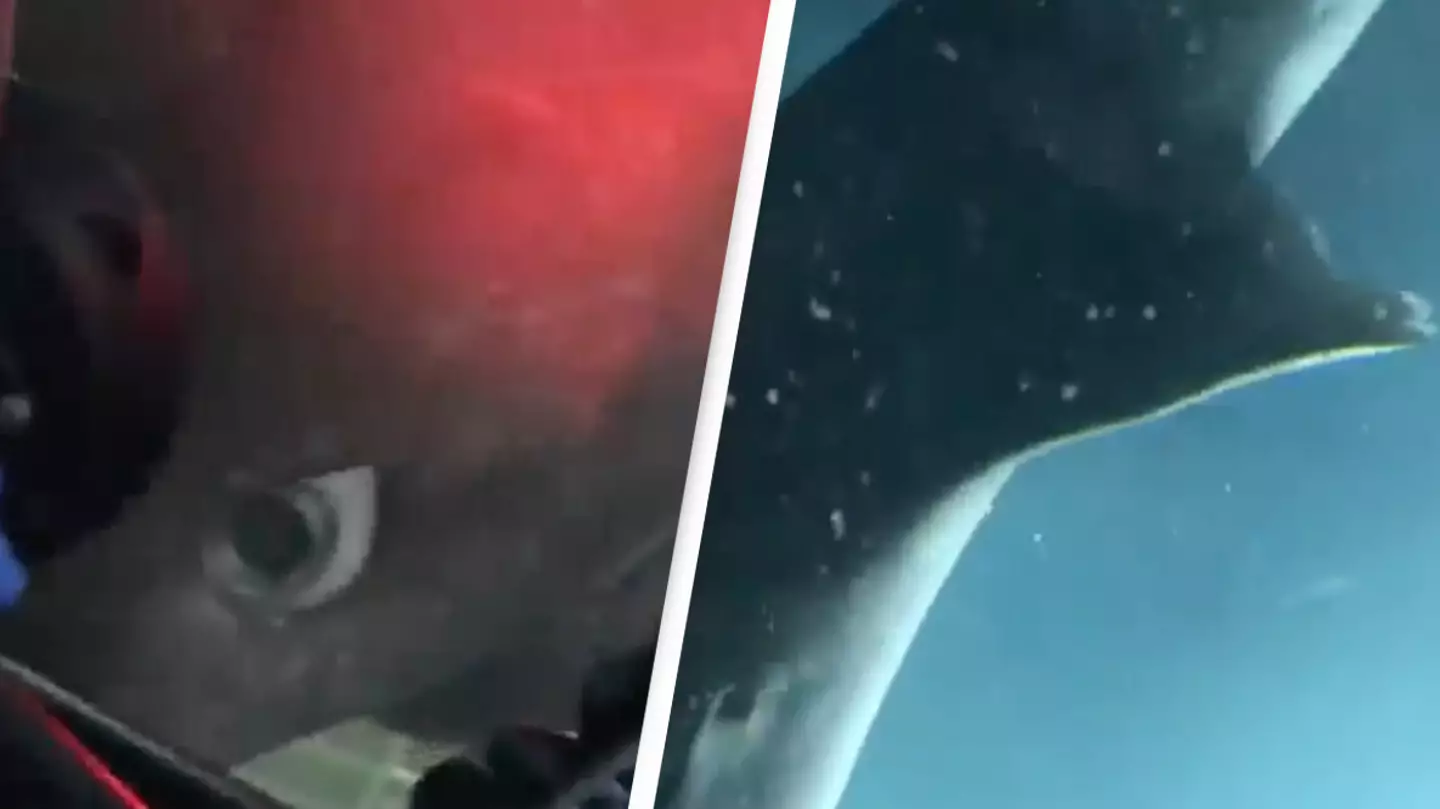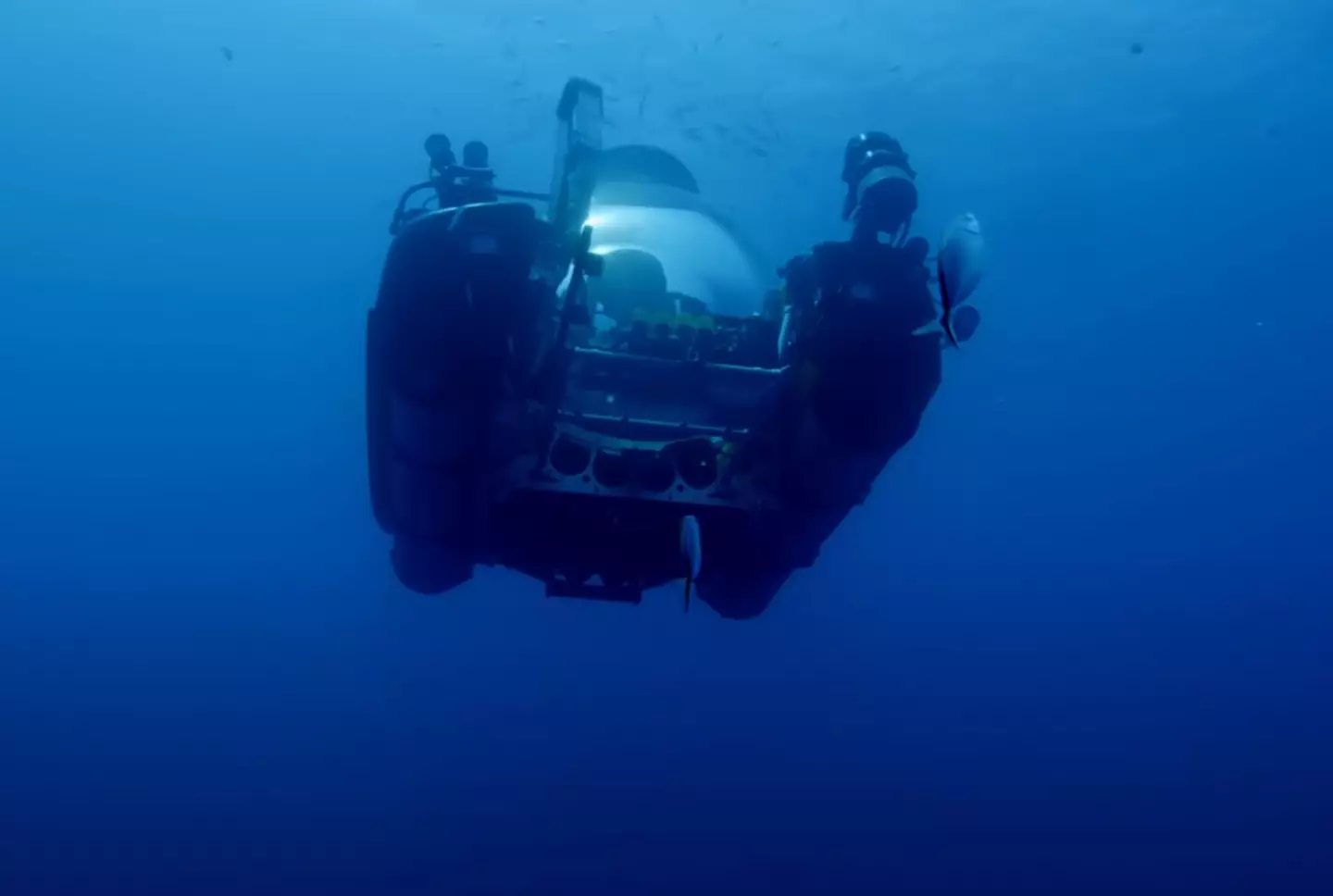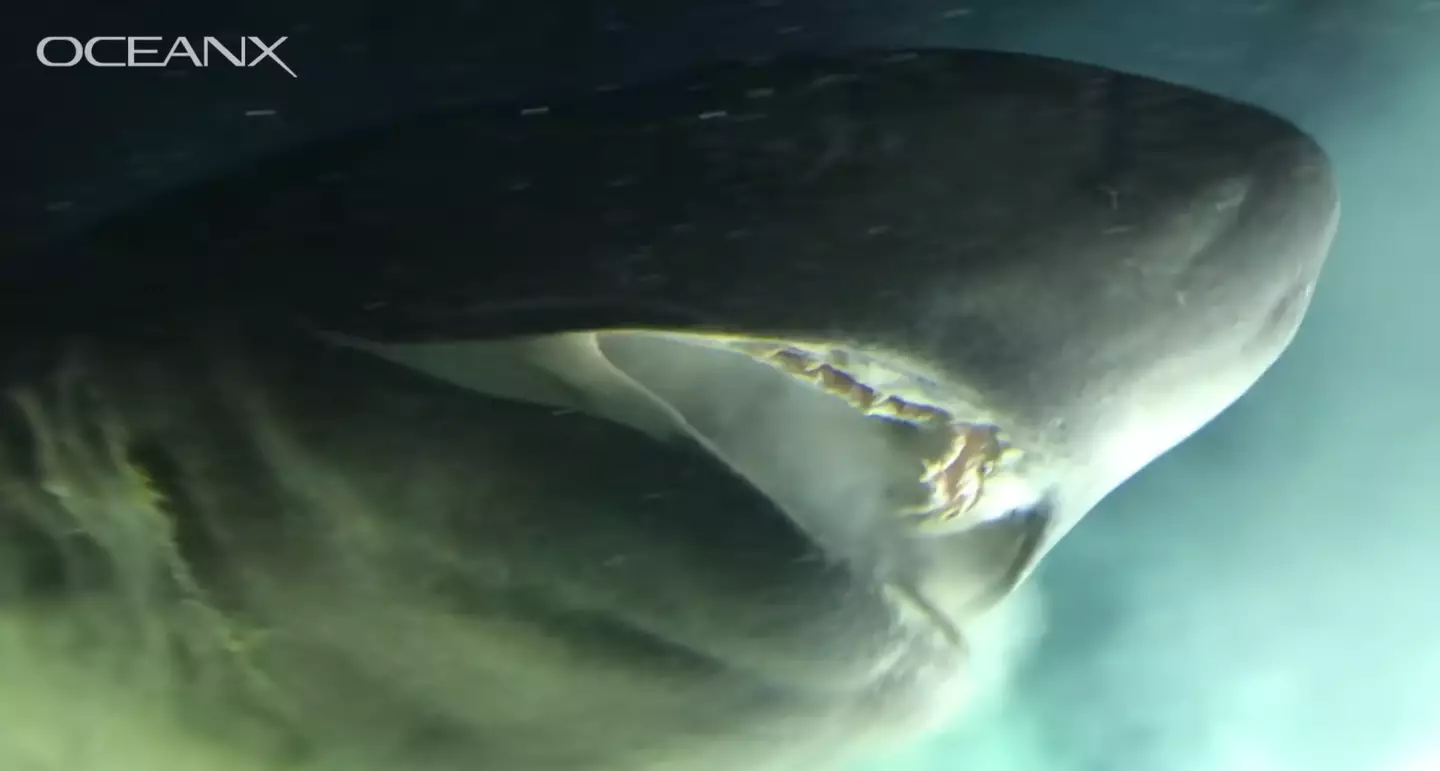
There's still so much about our planet that we're still learning about.
Scientists across the globe are working every day to try discover more about Earth, it's oceans and all of the in between.
And one thing that researchers have long been interested in is the land and marine life that we walk (and swim) alongside.
It seems as if some of the deepest and darkest parts of our oceans have some of the most intriguing of animals, with the many of the marine life down there being seldom seen as it's so difficult for us to access.
Advert

But back in 2019, a team of researchers managed to dive hundreds of meters below the surface and came into contact with what could only be described as a monster-like creature.
The predator is reportedly 'older than the dinosaurs' and can grow up to 20-feet in length.
While some might initially think that it's a megalodon shark, what the team from OceanX actually came in contact with bluntnose sixgill shark (sometimes referred to as a cow shark).
In the phenomenal footage taken from inside the submarine, the massive female shark casually swims over the underwater craft and even peers inside to inspect the researchers inside it.
The whole interaction looks like it came straight out of a Hollywood film - but it was in fact a very, very real experience.
And the OceanX team made history with the rare moment with the bluntnose six gill shark.
"Our objective was the deep-sea #shark, the bluntnose six gill," explained OceanX on YouTube at the time the video was posted in July 2019.
"This ancient species predates most dinosaurs, and is a dominant predator of the deep sea ecosystem. The lead scientist on the mission, FSU Marine Lab's Dr Dean Grubbs, has been the first to put a satellite tag on one of these elusive sharks, but until now had only been able to do so by bringing them up to the surface."
As to how they got the shark's attention, apparently the team took down 100lb of bait with them.
The video of the OceanX team's interaction with the creature has been video over 25 million times since it was posted, sparking them to take to Reddit to open the floor to any questions people might have.

One person asked on the thread: "How often does the tag check in with satellites? Do the sharks have to rise to a certain depth for the tag to communicate?"
Lucy Howey, from OceanX, replied: "There are satellite tags that can report to the satellites when an animal’s at the surface, however, because these are deepwater sharks that never go to the surface, we use archival tags (they’re kind of like a Fitbit in that they’re a small device that records and stores a bunch of data but to send it later). When the tag pops off it sends the data to a satellite.
"There’s a small piece of metal that attaches the tag to the animal and after a certain amount of time there’s an electrical current that corrodes the piece of metal and it floats to the surface.
"So the tag doesn’t 'check in' but the data does take a few weeks to download because there are only short periods of time when satellites are actually overhead to receive the signal over the course of a day, or even how many satellites are available to that part of the planet. It can also take a long time if there’s a lot of data in the tag/if the memory is full."
Pretty cool, huh?